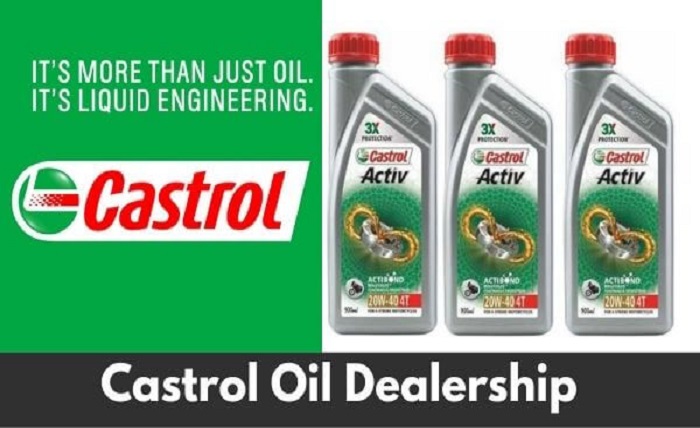Castrol Oil Price: Making Informed Lubrication Choices

For any vehicle owner, maintaining optimal engine performance is paramount. Choosing the right engine oil plays a crucial role in achieving this goal, and Castrol, a renowned brand synonymous with quality lubricants, often tops the list. But before you head to the nearest auto store, understanding Castrol oil prices is key to making informed decisions.
This comprehensive guide delves into the factors influencing Castrol oil prices, explores the various product lines and their costs, and offers valuable tips for navigating the market to find the best value for your money.
Factors Affecting Castrol Oil Prices:
- Oil Type: Synthetic oils, formulated for superior performance and extended drain intervals, naturally cost more than conventional or semi-synthetic oils.
- Viscosity Grade: Oils with wider viscosity ranges, like 5W-30 or 0W-40, offer greater adaptability to temperature extremes and are generally more expensive than single-grade oils.
- API Service Rating: Higher API ratings (e.g., SN Plus) indicate better engine protection and meet the latest industry standards, often translating to higher prices.
- Technology and Additives: Advanced formulations with friction modifiers, detergents, and anti-wear additives enhance engine performance and longevity, but also contribute to the price tag.
- Brand Recognition: Castrol, with its established reputation and global presence, commands a premium compared to lesser-known brands offering similar oil specifications.
- Market Fluctuations: Crude oil prices, supply chain disruptions, and seasonal variations can all impact the final cost of Castrol oil.
Exploring the Castrol Oil Product Line:
Castrol offers a diverse range of engine oils catering to various vehicle types and driving conditions. Here’s a glimpse into some popular options and their estimated prices (subject to change based on location and retailer):
- Castrol GTX: A conventional oil for older vehicles, offering basic protection and value. Price range: $15-$25 per quart.
- Castrol Edge: A premium synthetic oil for high-performance engines, providing extended drain intervals and superior wear protection. Price range: $25-$40 per quart.
- Castrol Magnatec: A semi-synthetic oil with intelligent molecules that cling to engine parts even when the engine is off, offering superior cold-start protection. Price range: $20-$30 per quart.
- Castrol Professional: Oils formulated for specific car manufacturers and their unique requirements. Price range: $25-$45 per quart.
Tips for Finding the Best Value Castrol Oil:
- Compare prices online and in-store: Researching prices across different retailers can help you find the best deals.
- Consider buying in bulk: Purchasing larger quantities, like gallon jugs, often offers cost savings.
- Look for promotions and discounts: Many auto stores and online retailers offer seasonal discounts or rebates on Castrol oil.
- Prioritize oil specifications over brand: Choose the oil that meets your vehicle’s specific requirements, even if it means opting for a less expensive brand with similar specifications.
- Consult your mechanic: Seek professional advice from a qualified mechanic to ensure you’re choosing the right Castrol oil for your vehicle.
Conclusion:
Understanding Castrol oil prices empowers you to make informed lubrication choices for your vehicle. By considering the factors impacting price, exploring the product line, and employing smart buying strategies, you can ensure optimal engine performance without breaking the bank. Remember, investing in the right Castrol oil is an investment in your vehicle’s longevity and reliability.
FAQs:
Q: What is the difference between synthetic and conventional oil?
A: Synthetic oil is engineered using advanced technology, offering superior performance, longer drain intervals, and better protection against wear and tear compared to conventional oil.
Q: How often should I change my Castrol oil?
A: Refer to your vehicle’s owner’s manual for recommended oil change intervals. Synthetic oils generally offer extended drain intervals compared to conventional oils.
Q: Is Castrol oil worth the extra price?
A: If your vehicle requires high-performance oil or extended drain intervals, Castrol’s premium formulations can offer significant benefits justifying the higher cost. However, for older vehicles or basic driving conditions, a less expensive brand with comparable specifications might be sufficient.
Q: Where can I find Castrol oil deals?
A: Check online retailers, auto parts stores, and grocery stores for promotions and discounts on Castrol oil.
By understanding Castrol oil prices and making informed choices, you can keep your vehicle running smoothly and efficiently for miles to come. Remember, proper engine lubrication is key to maintaining optimal performance and maximizing the lifespan of your prized possession.




